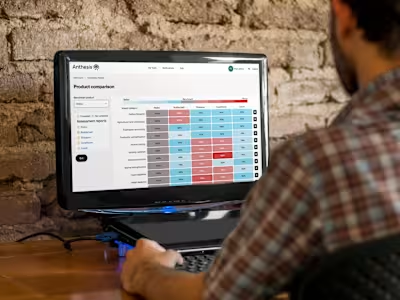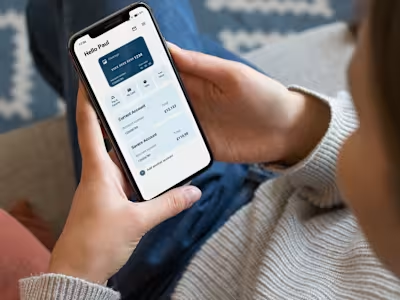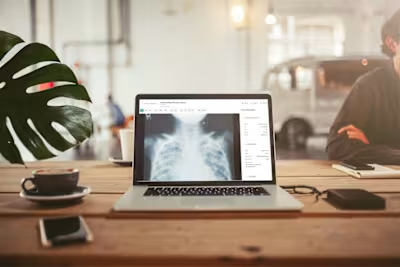Designing the LCA Calculator
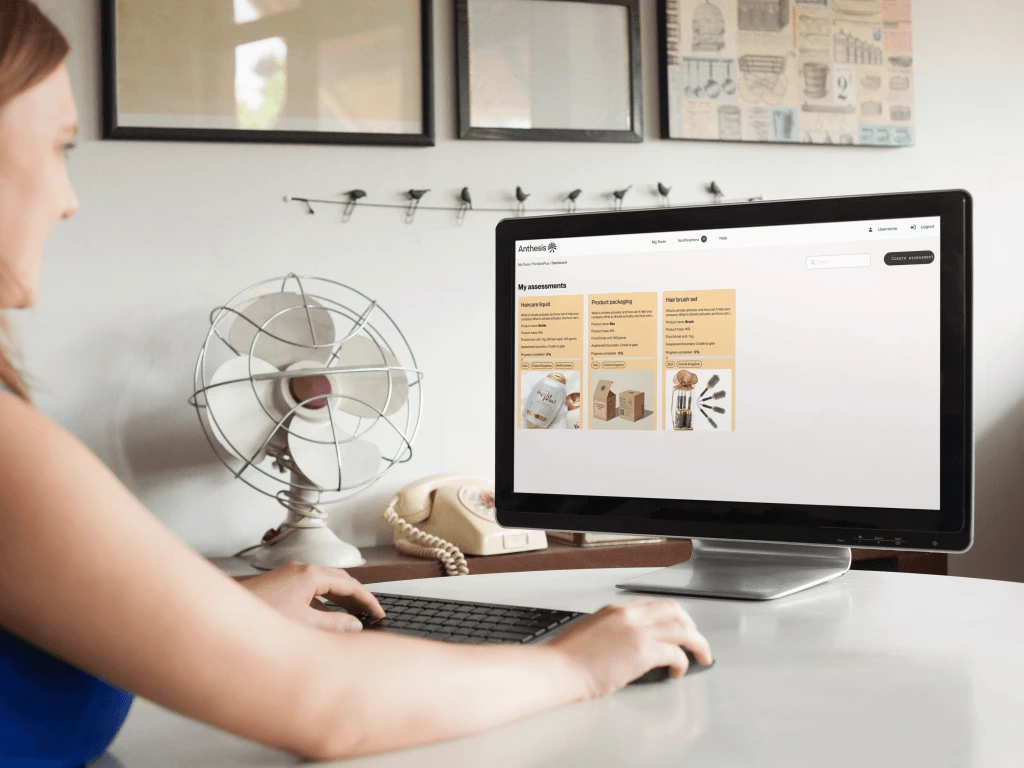
Designing the LCA Calculator
When I joined the project, I stepped into a cross-functional team: a product manager, product owner, scrum master, five developers, one QA tester, and myself as the solo UX/UI designer. The mission was ambitious: build a Life Cycle Assessment (LCA) Calculator that could help companies understand the environmental impact of their products from raw material sourcing through to end-of-life.
Sustainability was at the heart of this tool, but so was accessibility. Existing LCA software was often seen as intimidating, overly technical, and reserved for experts. Our challenge was clear: how do we create a calculator that feels approachable while still maintaining scientific accuracy?
The Outcome
The new LCA Calculator provided businesses with a user-friendly way to assess environmental impact across the product lifecycle. The benefits were clear:
Faster completion times
Fewer input errors
Clearer reports aligned with ISO sustainability standards
Increased adoption by non-technical users
For Sarah, this meant confidence in presenting her findings to leadership and clarity in where her company could improve.
Understanding the Problem
To ground myself in the user experience, I tried using OpenLCA, an open-source tool. After three hours of struggling with data imports, confusing terminology, and unclear workflows, I closed it in frustration. That moment was invaluable because it showed me exactly what it feels like for non-experts trying to complete an LCA.
Through stakeholder interviews, focus groups, and competitor reviews of Ecochain Helix, Sphera GaBi, OneClickLCA, and OpenLCA, a few key pain points stood out:
Assessments were overwhelming to set up
Navigation through steps felt disjointed
Users did not know where to find the right data
Reports did not update dynamically with inputs, leaving users unsure of progress
From this, we defined our guiding principle: simplify the journey without sacrificing accuracy.
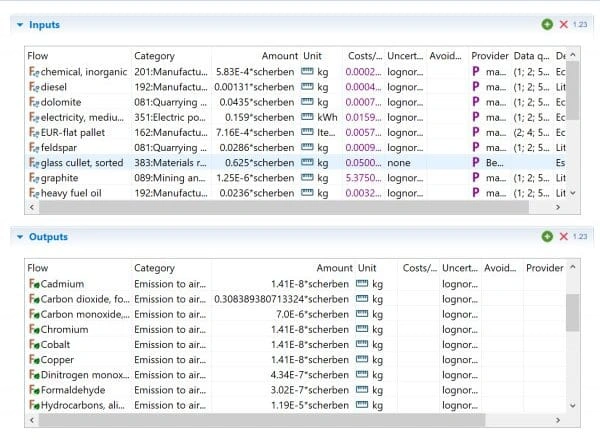
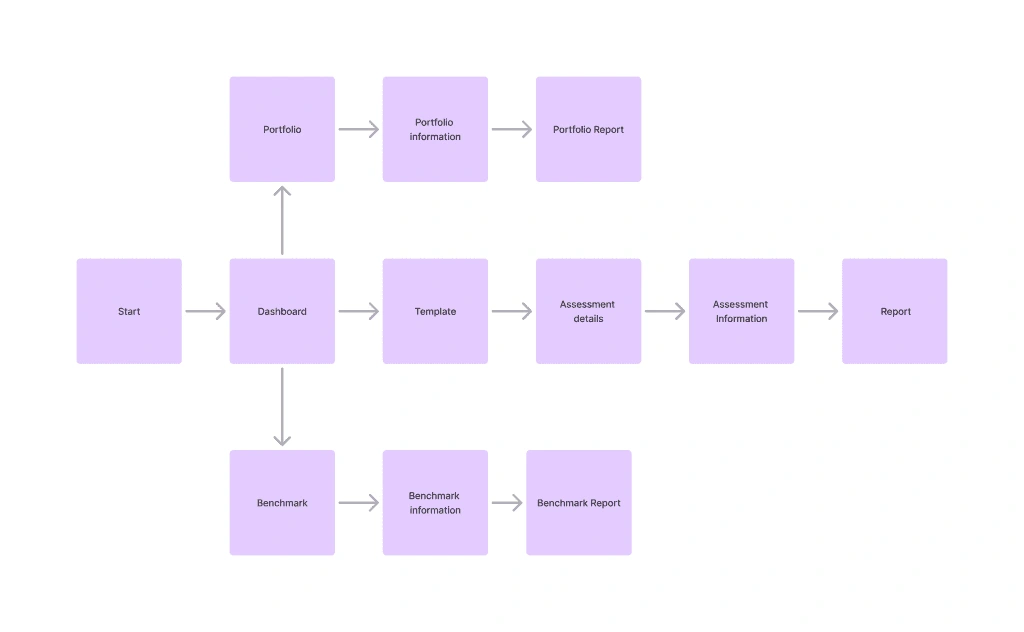
Meeting Sarah
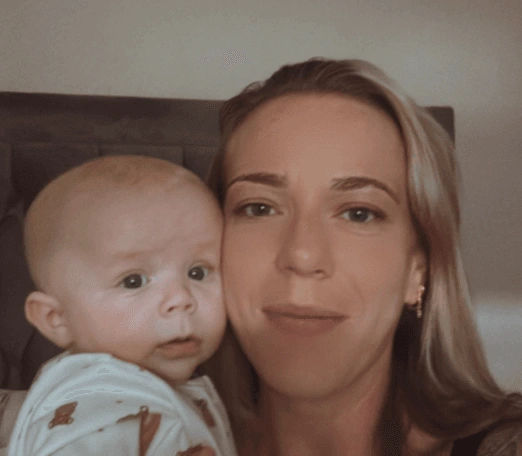
We built our primary persona around Sarah Thompson, a 34-year-old Sustainability Manager at a mid-sized manufacturing company. Sarah is not an LCA expert. She needs clear guidance, customizable templates, and the ability to present findings back to stakeholders with confidence.
Her goals:
Evaluate the carbon footprint of her company’s new product line
Identify areas for improvement
Produce reports that are easy to understand and share internally
Her frustrations
Her frustrations mirrored my OpenLCA experience. Tools required training, consumed too much time, and overwhelmed her with jargon. Our challenge was to make Sarah feel supported, guided, and empowered from the very first click.
Defining the Experience
We mapped Sarah’s user journey from setting up her first assessment through entering lifecycle data to generating a report. Every step needed clarity, validation, and visual feedback.
Instead of asking Sarah to dive into technical detail immediately, we introduced progressive disclosure. The tool educates as it guides, starting simple then expanding into detail when needed.
Problem statement
“As a Sustainability Manager, I want to be guided step by step through the LCA process so that I can complete assessments confidently, even without technical expertise.”
Ideation and Design
Wireframes focused on
Smart defaults, such as common materials pre-filled
Structured input such as sliders, dropdowns, contextual tips
Clear visual feedback with live updates on charts as data was added
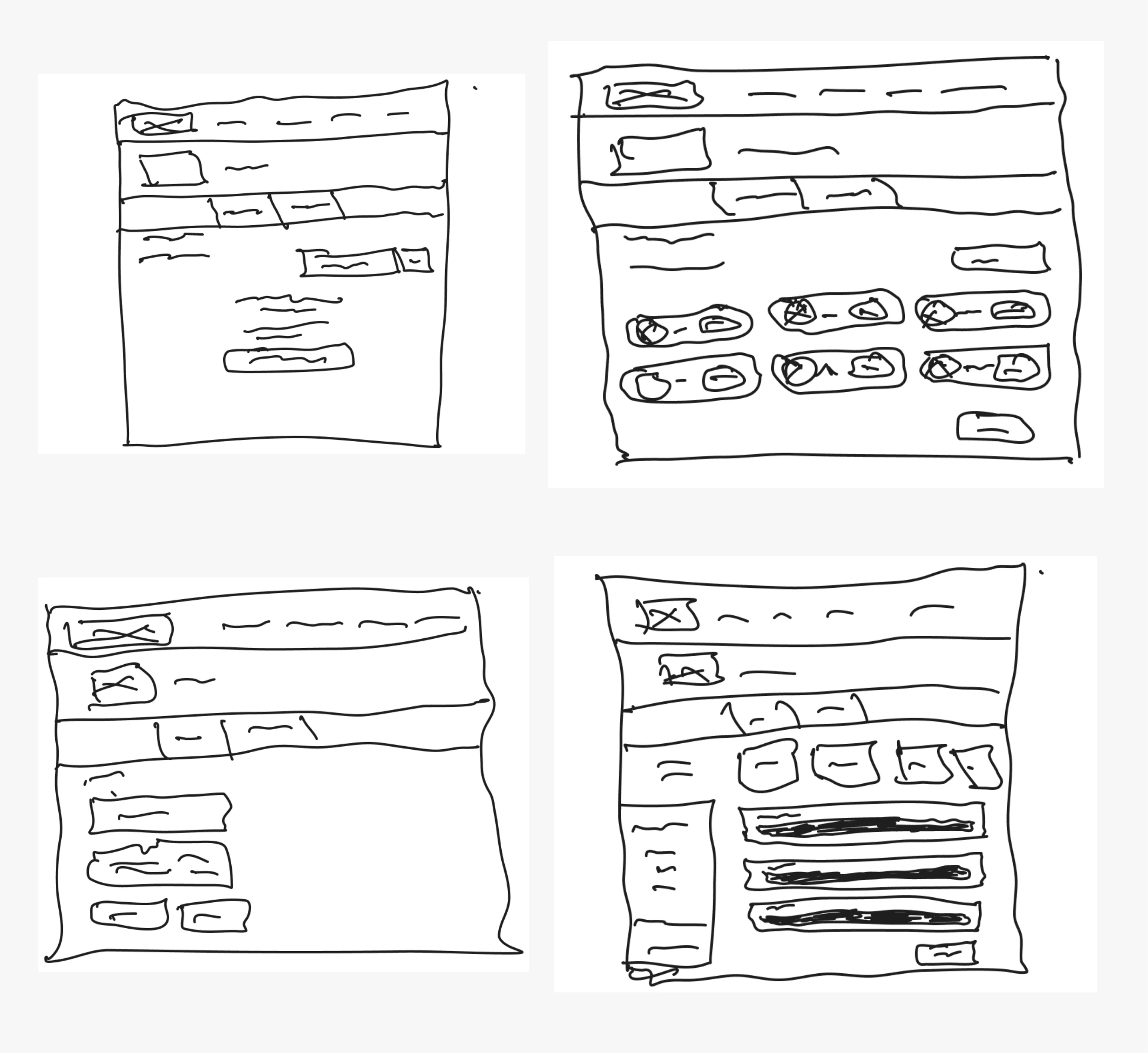
One challenge came from how products evolve over time. Initially, we asked users to answer the same questions for every component, which in one case meant repeating input 16 times. In usability testing, this caused frustration. Our solution was to move these questions into a dedicated Final Product section, drastically reducing repetition.
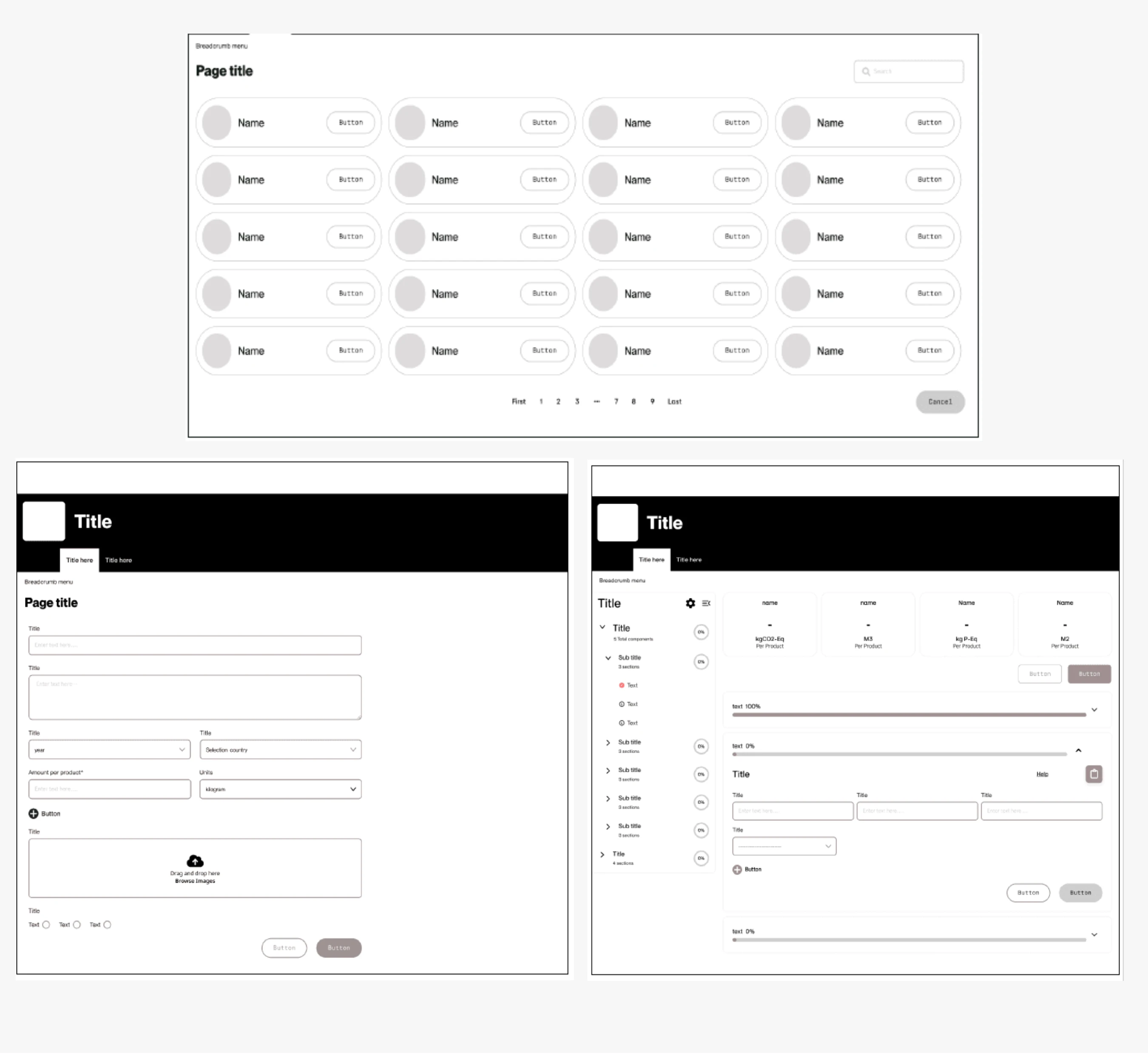
Testing and Iteration
We ran usability tests with both sustainability experts and business users. Sessions focused on task completion, time taken, and user confidence.
The results were encouraging
Users completed assessments faster
Non-experts felt the process was “approachable” rather than intimidating
The step-by-step flow reduced drop-offs significantly
The single sticking point was the repeated final product questions. Once fixed, engagement improved even further.
The Final Design
The high-fidelity UI was designed in Figma, built around reusable components and a clean visual hierarchy. The tone was professional yet friendly, with sustainability reflected in a calm color palette and iconography.
Accessibility was a core consideration, ensuring the calculator met WCAG AA standards. Responsiveness was built in so Sarah could run assessments from her desktop or a tablet during meetings.
The end result was a scalable tool that communicated trust, simplicity, and responsibility.
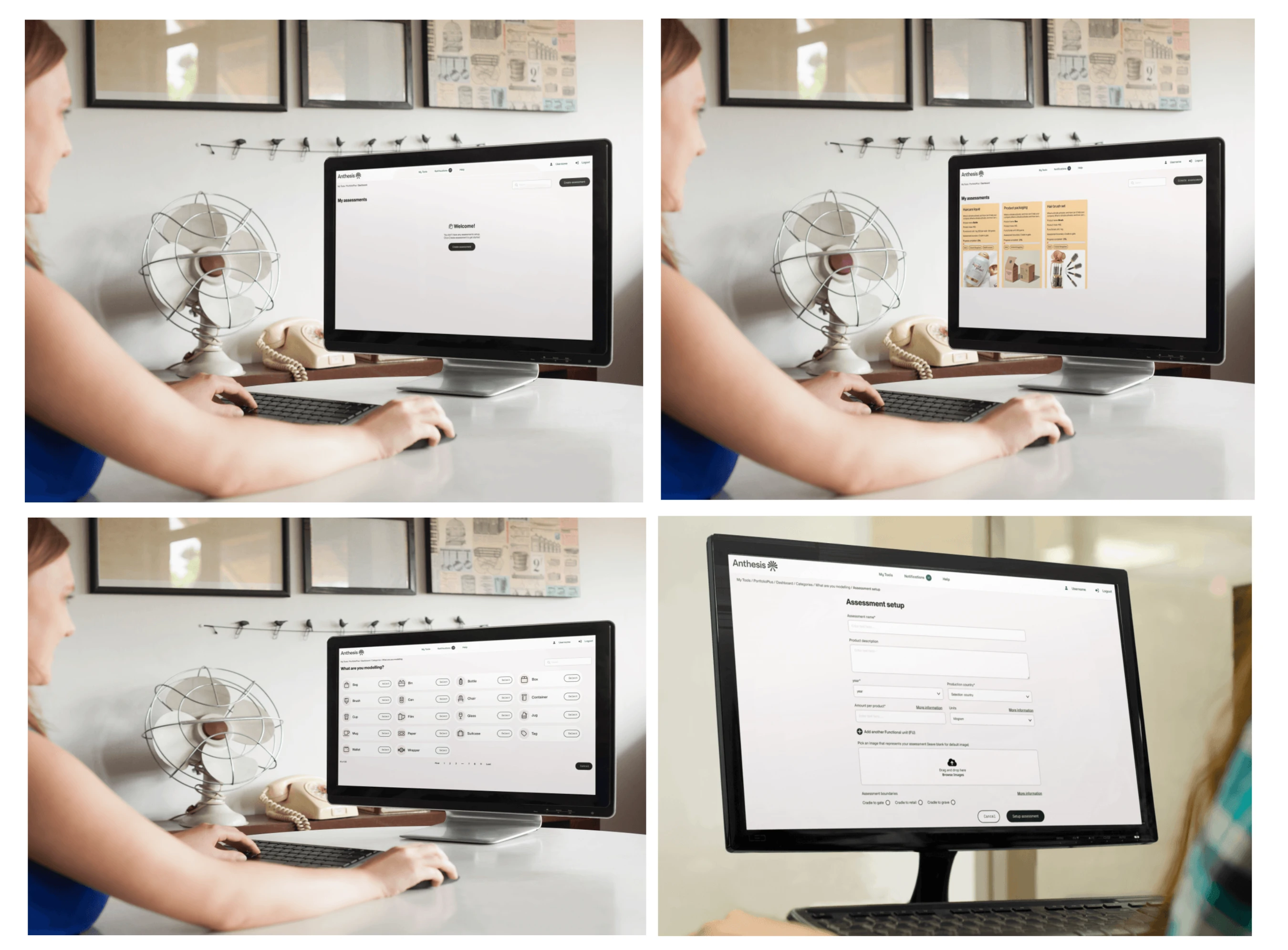
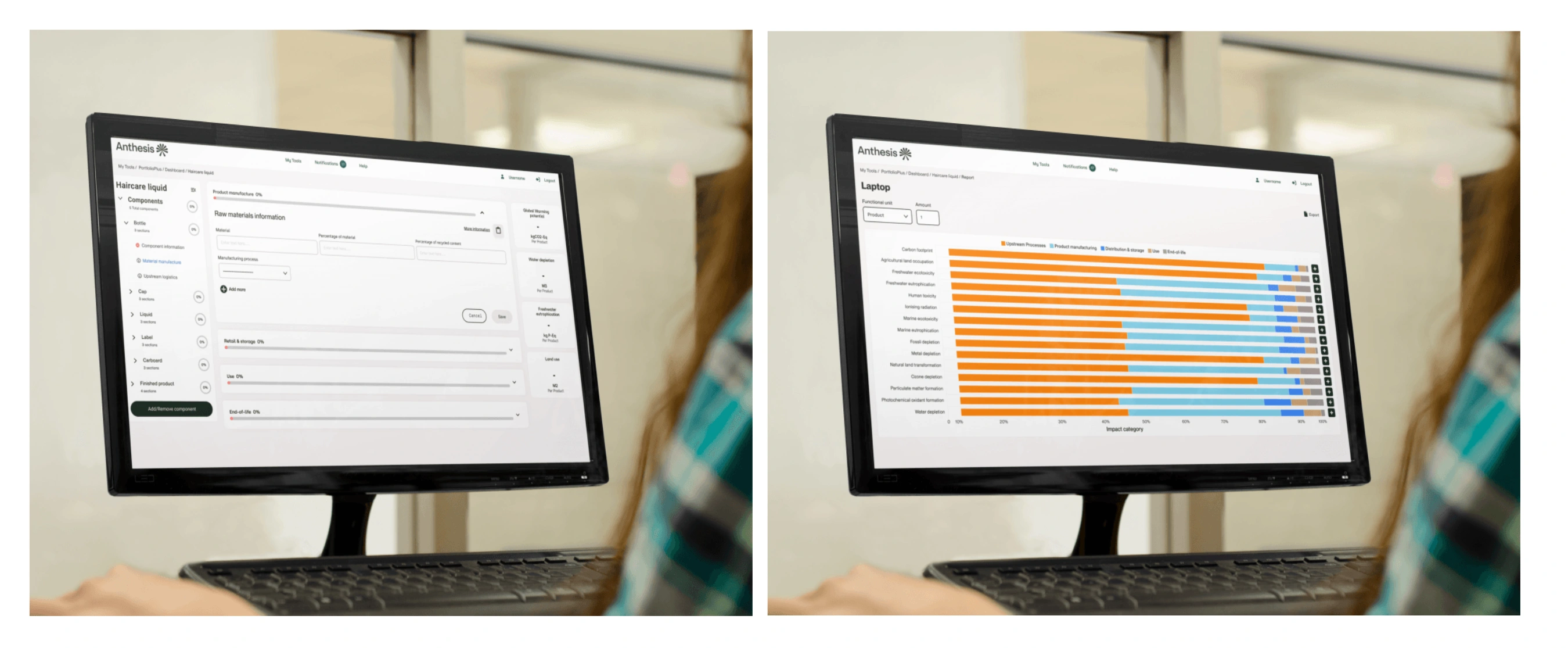
The Outcome
The new LCA Calculator provided businesses with a user-friendly way to assess environmental impact across the product lifecycle. The benefits were clear:
Faster completion times
Fewer input errors
Clearer reports aligned with ISO sustainability standards
Increased adoption by non-technical users
For Sarah, this meant confidence in presenting her findings to leadership and clarity in where her company could improve.
Reflection
This project reinforced some key lessons:
Progressive disclosure is powerful when dealing with complex technical topics like lifecycle analysis
Small usability fixes such as consolidating repetitive questions can transform engagement
Regular validation with both stakeholders and end users keeps the product grounded and prevents over-engineering
Next steps: export capabilities (Excel/PDF), customizable dashboards, and advanced portfolio reporting.
Like this project
Posted Oct 5, 2025
Created an intuitive LCA Calculator allowing non-experts to evaluate environmental impact effortlessly.






